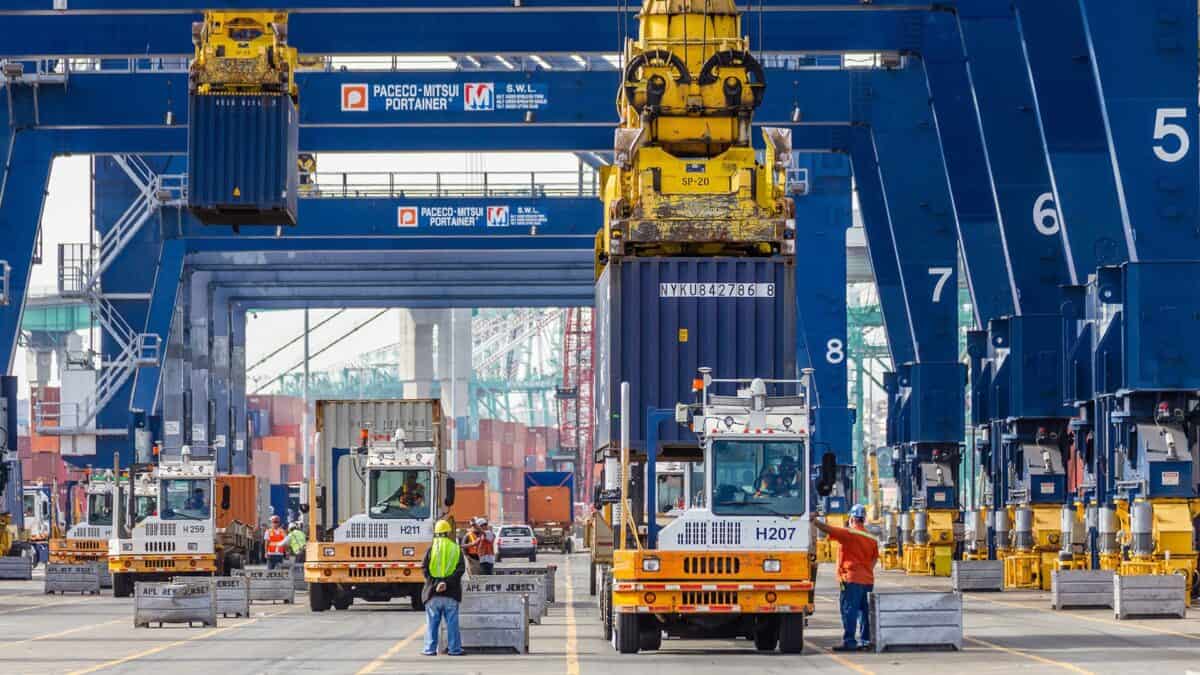West Coast ports are shutting down as union workers “no show” after a breakdown in negotiations with port management.
The Port of Oakland was shut down Friday morning due to insufficient labor for terminal operations, a stoppage that is expected to last at least through Saturday. A source close to the situation told CNBC the port shutdowns are expected to spread across the West Coast as a result of lack of sufficient labor as workers protest over wage negotiations in contract talks with port management.
Two of the Oakland port marine terminals — SSA, its largest, and TraPac — were closed as of the morning shift on Friday, said Robert Bernardo, spokesman for the Port of Oakland. The majority of imports and exports are processed through those terminals, he said.
While the actions taken by workers are not a formal strike, the source told CNBC to expect stoppages at other West Coast ports as union workers refuse to report for assignments, with operations also reportedly stopping at the port hub of Los Angeles, including Fenix Marine, the APL terminal, and Port of Hueneme, which processes automobiles and perishables — bananas the largest import in that category. The situation remains fluid, with truck drivers being turned away at Los Angeles sites.
In an ILWU press release, International President Willie Adams said talks have “not broken down” and added “we aren’t going to settle for an economic package that doesn’t recognize the heroic efforts and personal sacrifices of the ILWU workforce that lifted the shipping industry to record profits.”
The stoppages come at a time when activity at West Coast ports had picked up again after losing volume to the East Coast ports due to concerns about the volatile labor situation.
At the Port of Oakland, total container volume increased for two consecutive months, with port officials optimistic about the upswing. It is the eighth-largest port in the country, importing a wide range of items, from Australian wine and meat, to aluminum from South Korea, and clothing, electronics and furniture from China.
“Given the increase we’ve seen in business over the last couple of months, we are optimistic about a stronger second half of 2023 for the amount of cargo moving through Oakland,” said Port of Oakland Maritime Director Bryan Brandes. “We also anticipate increasing the number of ocean carrier services offered at the Port of Oakland in the coming months.”
“Oakland is a big port for U.S. ag exporters,” said Peter Friedmann, executive director of the Agriculture Transportation Coalition (AgTC). “Fridays are a big day for Ag exports.”

